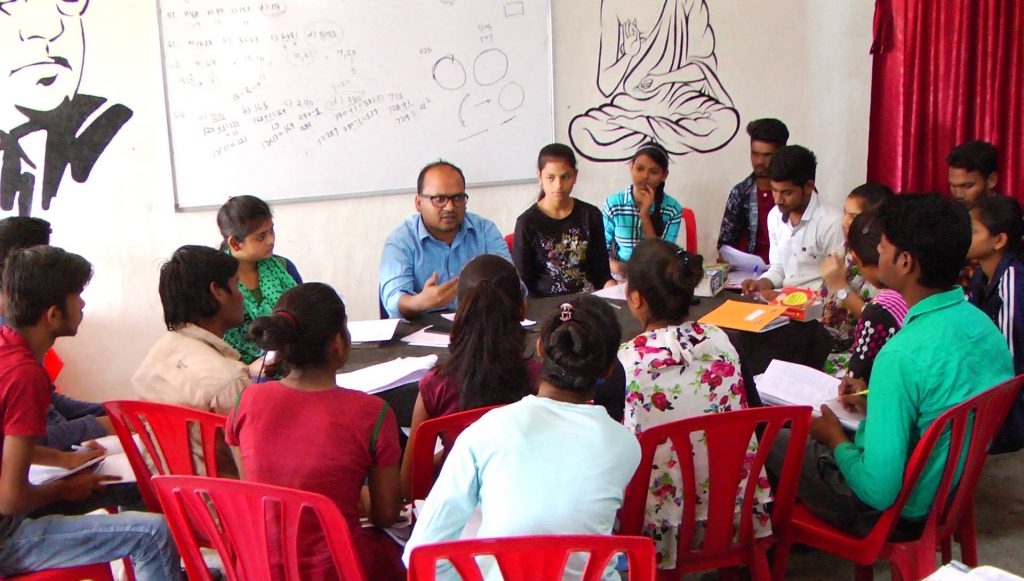
The Nalanda Story: In Conversation with Anoop Kumar
As part of the ongoing interview series at Dr. B.R. Ambedkar Caravan, we interacted with an Ambedkarite educator Anoop Kumar, founder of Nalanda Academy, Wardha. The interview was conducted by Mangesh Dahiwale. Given below is the transcript of the online interview conducted on 14th May 2020. To support Nalanda Academy, please visit here. Transcribed by students from Nalanda Academy.
Anoop Kumar trains young students from all over the country and has been successful in getting hundreds of students from marginalised castes and tribes in top universities in India and abroad. He has been devoted to the Ambedkarite Mission from a very young age. He ran a remarkable student magazine called INSIGHT, while studying in JNU in 2003-04. He has also written a lot on the issues concerning our society. He produced a series of documentaries known as ‘The Death of Merit’ along with his friends, that has been a remarkable documentation of the problems and mental agony that Dalit students face on the campuses. Having done that he decided to chalk out a very different path for himself and founded the Nalanda Academy in 2013. He is now completely devoting his time and energy for this great mission.
When we look at your life story, you have worked in so many areas. So the question is what made you to start this Nalanda Academy, what prompted you?
The idea has come through my own experiences of student life. My student life was difficult, troubled actually I will say. I went to an engineering college and faced caste discrimination. I saw how caste discrimination made our students vulnerable. I saw the psychological impact this had on our students. Most of our students come from humble backgrounds. They have struggled a lot and have been fairly successful in their academics, but as they reach elite educational spaces like engineering, medical and other professional colleges, a stigma is attached to them. A sense of inferiority is thrust on them that they do not deserve to be here as they have come through reservations.
But if you see their life struggles, you can notice how hard they have worked, despite all hurdles like financial problems, having no role models in the family as well as poor quality primary education system. Most of them are the first-generation literate. They have actually proven their merit in more than one way. Upper castes and elite students just have to clear the entrance exams. That is it. But our students not only have to clear the entrance exams, they have to fight other battles also. Yet when they enter into these institutions they are stigmatised as non-meritorious and the whole campus environment remains so hostile to them from the very first day. These things impact our students deeply.
During my engineering days, there was also much physical violence against our students in the name of ragging etc. And if you start asserting, start protesting, there is no one in the faculty to help you out because the teachers also feel that you deserve this ridicule, mockery and humiliation. It is their way of trying to punish you for availing reservations. Since the upper caste teachers hate reservations and can do nothing to stop it so they practice all kinds of discrimination against our students as a revenge. They will fail our students intentionally, not give proper marks in the viva and the fellow students will continuously mock them.
Many of our students do not have good English skills as they come from a non-English medium background. They are the ones who suffer the most. They become the poster boys and girls for ‘how bad the reservations are’. If a teacher is a little sensitive, he or she will understand that our student’s lack of English skills has nothing to do with his/her merit. It has everything to do with his circumstances. I have witnessed all this in my student life and it has left a deep impact.
Another thing that impacted me was our students not having any kind of platform to deal with all this. During my engineering days, in the 90s, I could not find any platform. I did not find anyone to talk about caste discrimination. I felt so vulnerable. It was almost impossible for me to concentrate on my studies. Back then no one could believe the prevalence of caste discrimination in higher education. Even our own community members believed that with education caste goes away. There was this belief that once you go to cities, metros, you won’t find caste. We also lived with that belief. But this was not true. Caste was there, everywhere. Caste is deeply entrenched in every structure. It was very difficult for me to convince my own family members that teachers were discriminating on caste. For 3 years in engineering college, I tried to fight, protest against caste discrimination but then I had to leave the college. Those 3 years of my life taught me about how vulnerable our students were. I felt the need for a platform where students feel that they are not alone, the Ambedkarite movement is with them and is going to help them. Once the students receive the support, they are certainly going to contribute to the community. They are not going to run away from their responsibilities.
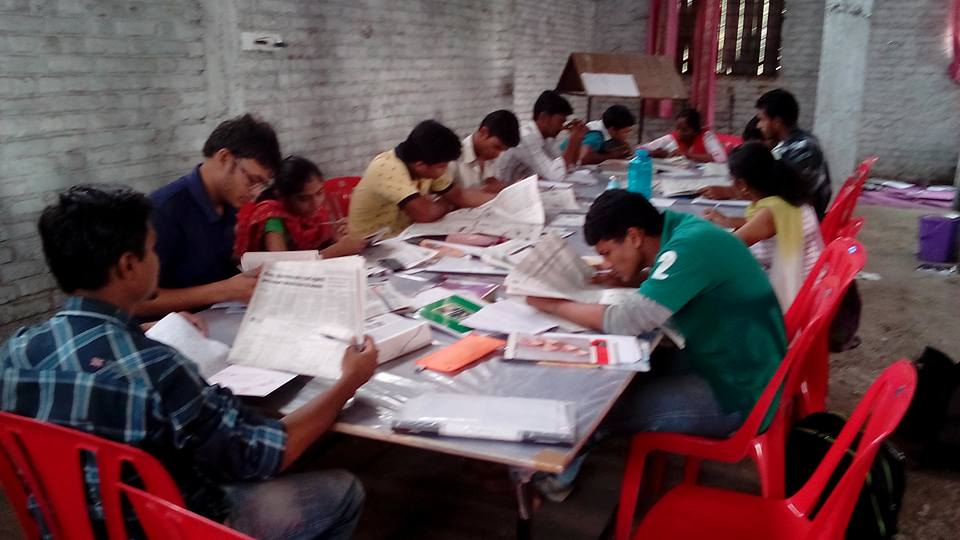
Hundreds of students from across the country apply for your Academy every year. What criteria do you use to enrol your students? Can you tell us about the diversity of the students that you get?
While working with our students for over two decades, I have seen that many Dalit and other marginalised castes and communities, which are less in numbers, are not much there in our movement. It has been one of our greatest weaknesses. When I started Nalanda, I made it very sure that our work should be able to reach every caste, community which is marginalised in the society. So I choose my students very carefully. I have 3 – 4 criteria of choosing them. Students should be from non-English medium backgrounds. They should be from the rural areas. Half of the seats are reserved for the women students. If the students come from non-majority scheduled castes or from scheduled tribes, nomadic tribes or most backward castes, I give them the first preference. The reason is that the other castes, communities should also feel that they are part of our movement. Unless and until our movement reaches out to them, we should not expect that everybody will come and join us.
I come from a caste which is not very much part of the Dalit movement. I come from a caste which is a very hinduised scheduled caste in UP. I witnessed the struggle within me when I transitioned from my particular caste to the larger Dalit movement. I faced this because the Ambedkarite movement was not there in my family or in my caste. So I understand the responsibility of our movement to reach out to particular castes among scheduled castes which are less in numbers and to other castes and communities facing similar issues and problems. We should reach out because we want social change. We want to build a better society. So Nalanda has this policy to give preference to the students from a marginalised background. I don’t take any entrance exams. I just talk to the student, ask 2-3 questions. If you are a drop-out and have left your studies, your admission is guaranteed. The weaker you are in studies, the more chances you have that you will get admission in Nalanda.
Our movement should be able to reach to those who are at the last, who are the weakest. Then there is some sense for a movement. Otherwise all is just plain rhetoric. Rhetoric are fine, I am not against that but I don’t think that our movement will ever become strong and the community that we envision and aspire for will ever happen by just that. Our people who are in the movement and have experience, resources and tools, have to reach out to other marginalised castes and communities. So we work on these ideas. Half of our students are women. We never compromise on this. Around 90 percent of the students are from rural areas, first-generation literate and financially weak students. Scholarships, resources, books, whatever help students need, we provide. They should feel that the community is with them. That is what I believe will strengthen our movement.
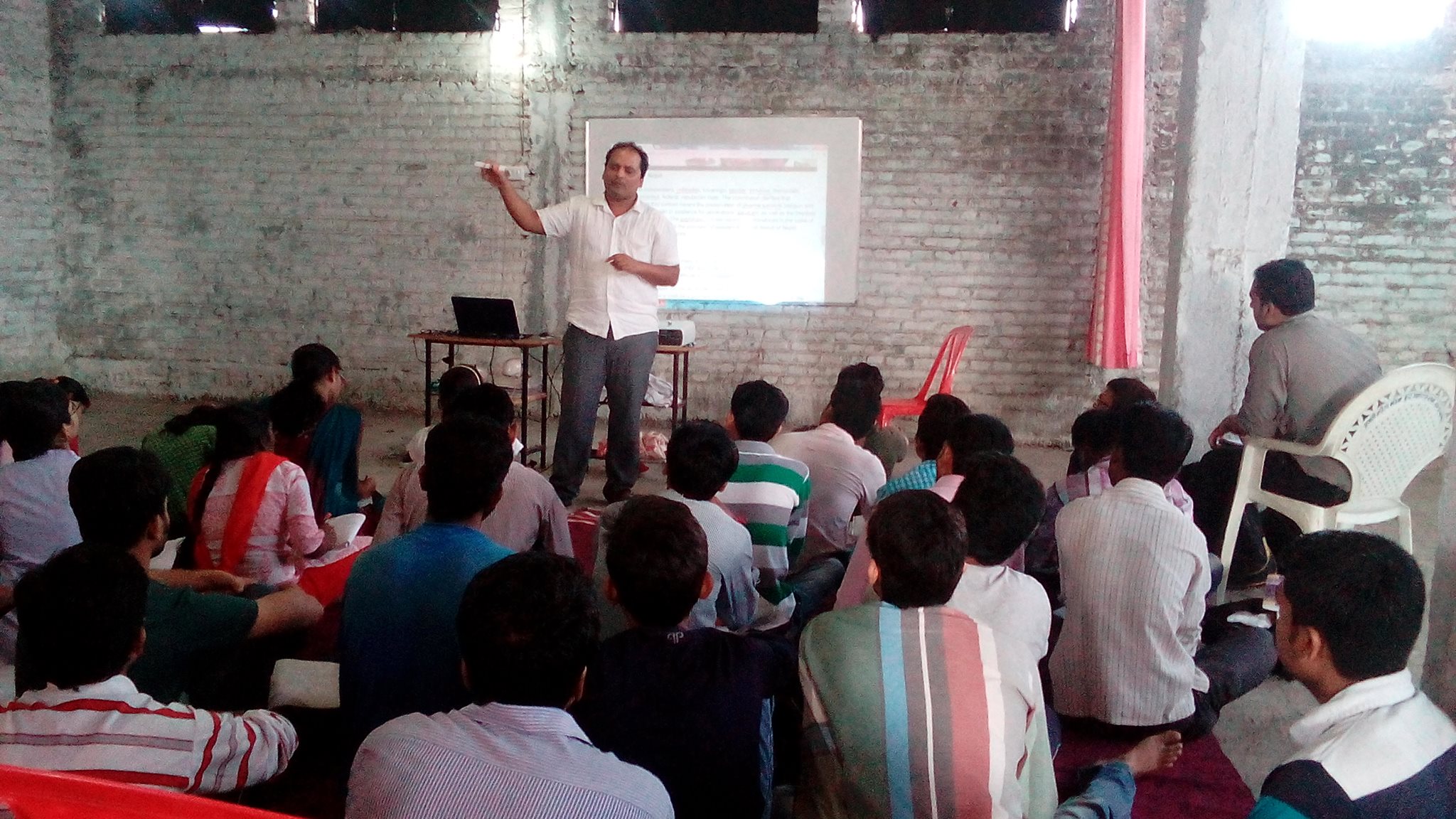
It seems that yours must be the only institute that has this kind of criteria that the more marginalised you are, the lesser access you have to education, your chances of getting into Nalanda Academy are higher.
I believe this is what the true essence of Ambedkarism is. This is what Jotiba and Savitrimai Phule were trying to do. This is what Ayyankali was trying to do. I am not trying to do anything special. This is what our leaders had done and taught us, to reach out to the people who are left behind, who are at the last. If we do not apply this approach, I don’t feel our movement will ever succeed as it stands for complete social transformation. I never see Nalanda as a coaching centre. I am not bothered about a few individual success stories. What I bother the most is that if a student needs us, we must be there for him or her.
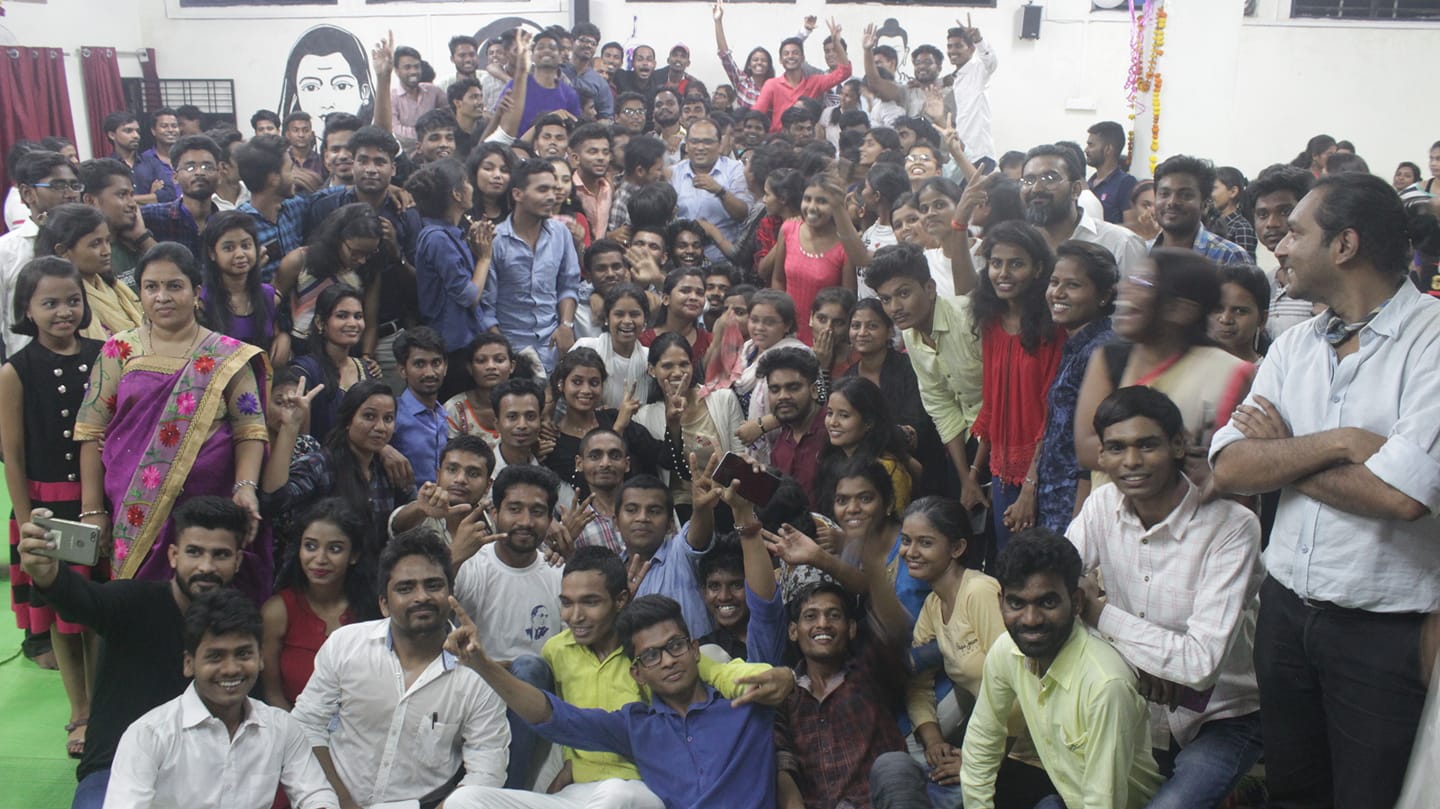
You work with our poorest among the poor students, coming from marginalised backgrounds. What are some of the moving experiences you had, some of the emotional moments where you really felt shaken?
There are many such moments but one that is really close to my heart happened when I had just started teaching, in 2014-15. Those days I could not provide my students any financial support for their living and mess facilities. There was this Dalit girl student who took admission. She attended the class initially and then took a leave for a few days. When she came back, I enquired about her absence. Then she told me something that actually shook me completely. She had sold her gold chain, given by her grandmother, to be able to stay in Wardha and study at Nalanda. I was shocked. It was the initial years of Nalanda and I was also not very confident. Now I am very confident and know that if a student joins Nalanda, he or she will be successful. But back then, I was not having that confidence and here was someone showing so much confidence in me that she sold her gold chain, just to come and study with me! That was the moment when whatever confusions I had, went away. I decided to work hard. The second thing I decided was that we are going to provide financial support to the students henceforth. Teaching free is not the complete solution. Our students will join but they need money to stay in Wardha. They need money to eat food. So after this incident, I decided that I am going to support my students financially too apart from teaching them free. So now our students who require financial support, get monthly scholarships. We pay their entrance exam fees, even pay their train travels sometimes. Whatever students need, they just tell me and we provide without even asking any question. That one incident changed me a lot. Why I felt so overwhelmed and affected was because someone was posing so much faith in me. She had just one asset and she was ready to sell it to attend your class. After that there was no confusion in my head. I had to work, I had to do what I am doing.
The second incident which I am very proud of is about an Adivasi student from Jharkhand. This boy had left his studies for many years. He was a dropout after his 12th. Since then he had been working as a labourer. One of his friends came to know about Nalanda Academy. He got in touch through Facebook. He told me that the student wanted to join but had no money. I told him about our scholarship program and also offered to provide some monetary help to the family as his father was sick. So the boy joined our Academy. Initially he looked a bit scared sitting in the class because he had left his studies many years before. But within a year, this boy cleared 3 university entrance exams and topped in one. He was one of the most hardworking students. During nights, he used to sleep in the class itself, instead of going to his room, so that he could study more. He studied like mad actually, for 14-15 hours every day and now he is pursuing his graduation from University of Hyderabad.
Then there were two sisters from Karnataka. They come from a devadasi family background. Both were child labourers working in the mines in Hospet. When the elder sister joined Nalanda 2 years back, she told me that it was after 10-12 years that she was actually going to sit in a classroom. Now she is one of the leading scholars and has done her post-graduation from Azim Premji University, Bengaluru. Her younger sister is doing her PG from TISS, Mumbai.
So these are the stories. This is not some miracle. This is 5 percent my efforts, 95 percent efforts are from the students themselves. I just provide them some opportunities, the opportunities which should have been provided by the state, by the society. I see Nalanda’s role just as a small initiative which tries to provide opportunities to the students who want to study, want to pursue higher education, want to work for the community, but who never stood a chance as opportunities were denied to them. Given an opportunity they work very hard. I am very proud to say that our success rate is almost 100 percent. I take 200-250 students every year and almost everyone gets through. Right now I have more than 400 Nalanda Alumni studying in top Indian universities. I have students who are studying in the USA and Canada. This year, 11 students will be leaving for the USA, Canada and Australia.
Our students only need small opportunities with some basic support. They are the most hardworking students you will ever see. Some of my students come to class at 5 am in the morning. I have to open the classroom so early. They will sit the whole day and study because they cannot study in their rented rooms. You have to come and see this, amazing this is. Our students work so hard and still this myth of them being non-meritorious gets played so much against them! ‘Merit’ is the most bogus concept in this country. You cannot compare merit when society is so unequal. Nalanda students are proof of that. I am very proud of my students and I have many such amazing stories to share.
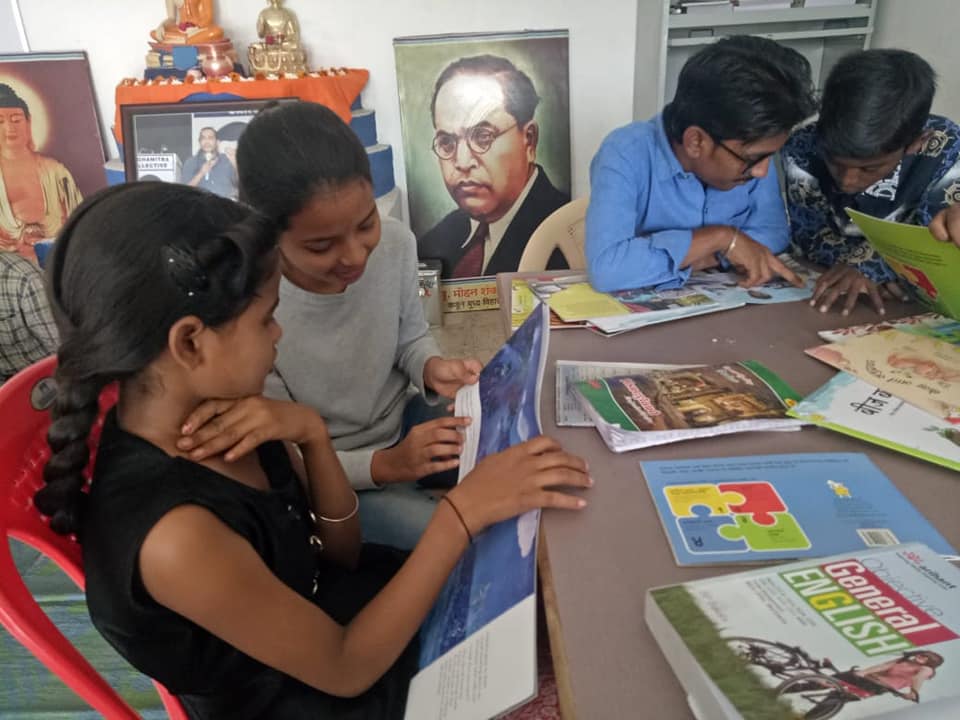
These are very emotionally moving stories that you have narrated. The path that you have chosen is a difficult path. You have to arrange a lot of things for the students, you have to create lots of resources. I am sure that you would have had many difficult times. What inspires you and keeps you going forth?
My leaders inspire me – Jotiba Phule, Savitrimai, Ayyankali, Babasaheb. Take the amazing story of Ayyankali from Kerala. He was himself an illiterate person. He started schools for our untouchable community. Every time he tried to build a school, his school was burnt down. I think some 4-5 times his school was burnt down by the ‘upper’ castes but he still continued. Then you hear the stories of Jotiba and Savitrimai Phule on how difficult their lives were. Sometimes the very same people for whom they were working were attacking them. Then there was so much abuse, threats and resistance from ‘upper’ castes. And despite all this, they carried on with their mission their whole lives. Jotiba was a contractor, he could have led a lavish life. In the last moments of his life, Savitrimai had to write letters to their friends requesting financial support for his treatment. And then Babasaheb of course. He created one institution after another. Apart from being a scholar, politician he was also an institution builder. He built many educational institutions including colleges and universities. This is one aspect, after his death, which we lack. We have not been able to build institutions. Unless we invest our lives in building institutions, our movement will never appear strong because institutions create legacies. I believe that creating different institutions is very important and this is where I find our movement a bit weak. So our trying to build Nalanda as an institution is one small step in that direction.
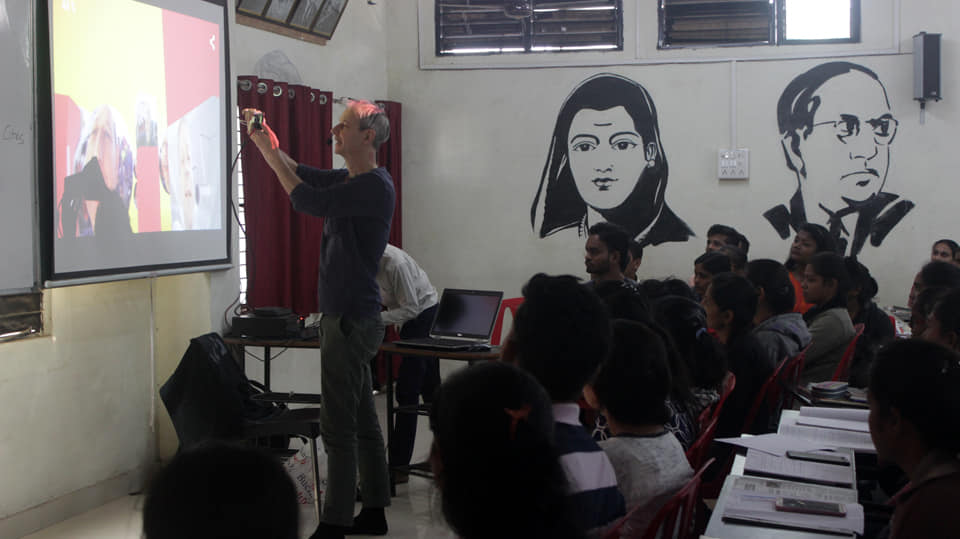
As we all know that you are against taking any grants from NGOs, Corporates or Foundations, You have made it a point to make this Nalanda initiative into a community institution something that is sustained and run by the community. What kind of support do you get from the community?
Whatever Nalanda is today is because of the support from the Ambedkarite community. The community has been very helpful to our initiative and we have been able to raise all kinds of resources from the community. I don’t take grants from the government or from NGOs. I actually do not approach anyone in particular. I believe that this should be a community-supported initiative and the community should own it. The reason is that there are so many negative stereotypes against us such as that we are not able to run institutions, that we are failures, that our community is not very helpful etc. All these stereotypes play negatively in our heads. I want to create an institution which is run solely on community’s support, so that the community should be able to take pride in that. I also want us to be accountable to the community. If I take an NGO or government grant, I am only accountable to that funding agency. The community will never own it. You might be helping the community, but the community will never feel that the institution is part of their lives.
So from day one, I have been very sure that this is the model I will work on and decided that if the community supports me I will carry on, if not, then I will close down. I am very clear about this that Nalanda has to run through community’s support. If the support is not there it means that my work is not up to the mark and my community does not need this. If my work is up to the mark, the community is going to support wholeheartedly. I have been proven right. For the last 7 years whatever Nalanda has been able to achieve is due to the community’s support. We have been able to raise sufficient funds to run our Academy, support our students and staff without much problem.
I raise funds for Nalanda Academy twice a year. Suppose I raise in July, then I run Nalanda for the next 6 months with that fund. In January again I will raise funds for the next 6 months. So what I do is, I just post a status message on Facebook for support. I never write to any individual, I never write to groups, I just write on my FB page that we need funds. Till now we have been fairly successful. The community of Ambedkarites, not only in India but from abroad too, has been very supportive. It gives me a lot of confidence that there are our community people who are watching us and are willing to appreciate and support our efforts.
This also creates a great impact on our students. When they come to know that their study at Nalanda is supported through community efforts, they feel affinity with the community. If it was a government project, students would feel that this was all government money, and they would just study and leave. But now our students understand that every paisa to run this Academy has come from the community and that the community has shown faith in this initiative, then they too feel a sense of belonging, a part of a larger community. This is the biggest reason for my decision to run this as a community initiative.
I want my students to feel that they are not alone. They are being supported by the whole community. This is with our own sweat and blood that we are able to teach and support them. This creates a very positive impact on the students. I don’t have to teach them anything about the Ambedkarite movement actually. I take my role of a teacher very seriously. When I teach, I only teach the subjects. I never talk much about the movement. I believe that the students are intelligent enough to understand. I never try to put pressure on my students. I never ask the students to pay back. Many Nalanda alumni are in jobs, I never tell them to pay back. They themselves contribute. I never do that because I believe that we are fighting a moral battle. If you are convinced that this initiative has helped you and you need to support it, you will support yourself. This thought should come to the students by themselves rather than me imposing it. I am happy that this is working out quite well. Almost all my alumni students payback. Most of them give monthly contributions and whenever we need something to buy, they help us.
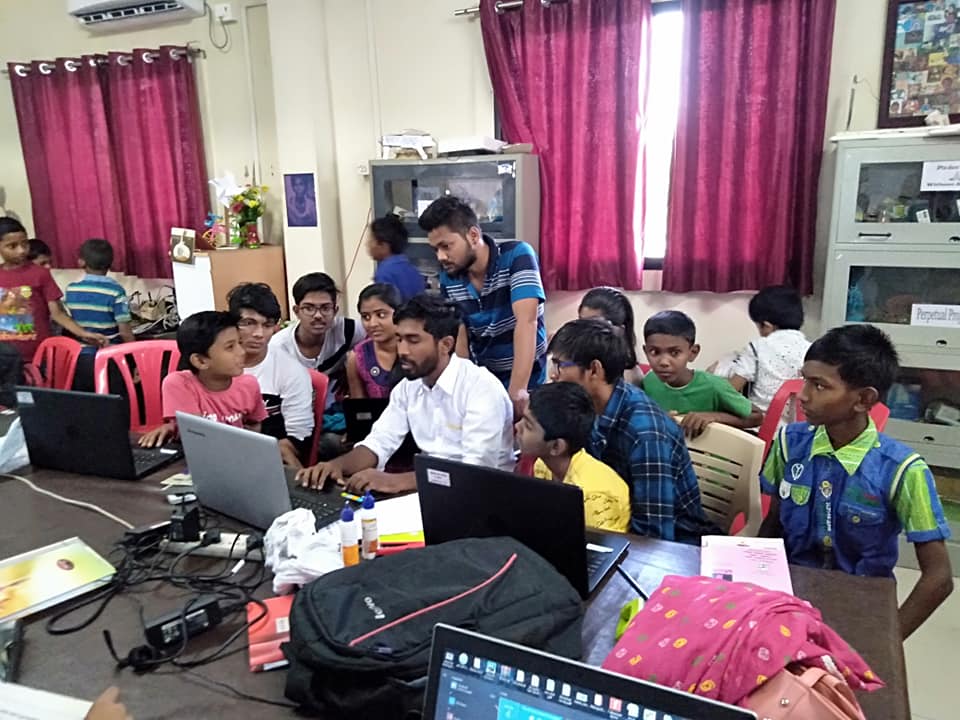
I think this is a very remarkable sort of an achievement for an institute to get its support from the community. Coming down to the vision of Nalanda, where do you see it in future? What is your dream about it? Where do you see it going, say in the next 5-10 years?
Right now we are working on having our own campus. I have now around 250 students and they come from 15 states across the country. We don’t have hostel or mess facilities so the students have to take a rented place and hire private mess for food. There are a lot of issues. Security is one concern. Food is another concern as the private messes are not providing quality food. The rented rooms are not very good. There have been lots of health concerns also for my students. So we are now working on the idea of having our own campus with hostels, mess, auditorium, classrooms, and a library. Right now I just have one hall in a Buddha vihar, that is where the class is located. I want to share one good news with you that the parents of two of our students at Nalanda have been very happy with us as one of their sons went to the USA and the other graduated from TISS, Mumbai so they have decided to donate 6 acres of land for the proposed Nalanda campus.
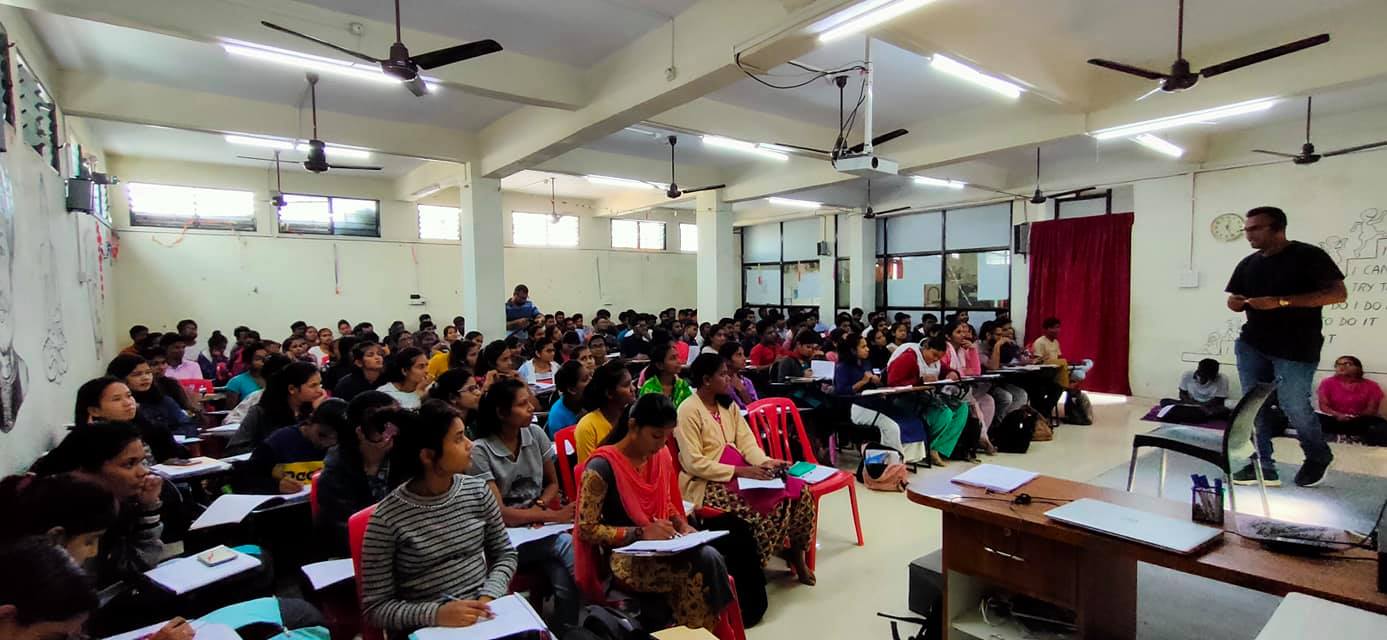
Wow! That is good news.
It is big news actually. The family is from a very humble background and yet they have such a big heart. Hats off to them. Our plan is to construct an educational campus to train our students not only in sciences, social sciences but also in arts, music, culture etc. This is one dream that some of us have been working on for the last couple of years. Once we have our own physical space, we can actually do a lot of things. We can become a resource centre. I have run a student magazine INSIGHT for 5-6 years. Later I ran a telephone helpline for our students from 2008 to 2013. I managed an online mentorship program and an educational portal for our students in the same period. I want to revive all these now. Once we have a campus and a team, we will have our own magazine, our own educational portal with various mentorship programs and a telephone helpline to reach out to our students everywhere. We also need our own knowledge production centre. I want to support our students who want to do research. We need to identify potential research scholars from our community and provide them all support to document our history and struggle. This is very important for our movement. So I see Nalanda in the future as a resource centre for our students providing them all support.
One more thing we will like to work on in the future is to create a Dr. Ambedkar National Scholars Fund. This is very important as I have seen our students leaving their prestigious courses just because they were not able to pay mess bills. I have seen our students dropping out after taking admissions, I have seen students not even applying for admissions due to lack of financial support. So we need to have some kind of a national fund to support our students unconditionally. I don’t want to put any terms and conditions for our students. If our students need, we have to be there with them. This is what we do for our children, no? The unconditional support for their education. We do, no? Even if our son or daughter fails, we keep trying to help to build their career. This is the only approach which will work for our community.
I also hope that Nalanda becomes a role model for others to emulate. There are thousands of people like me who are working on the ground. Hopefully some of them will emulate this model and start their separate Nalanda. In fact there are many friends who have already initiated this in different parts of Maharashtra, Chhattisgarh, Kerala, Odisha, Uttarakhand and Punjab. We are trying to provide as much support as possible. I am not looking to open branches of Nalanda. I want these initiatives to be independent. We are just there to support them. I don’t want to stretch myself and take much burden because I believe that the problem is so big that few people will not be able to solve it. Our population is in Crores. We need thousands of Nalanda. Once Nalanda is able to prove its success, I am confident that thousands of Nalanda will come up.
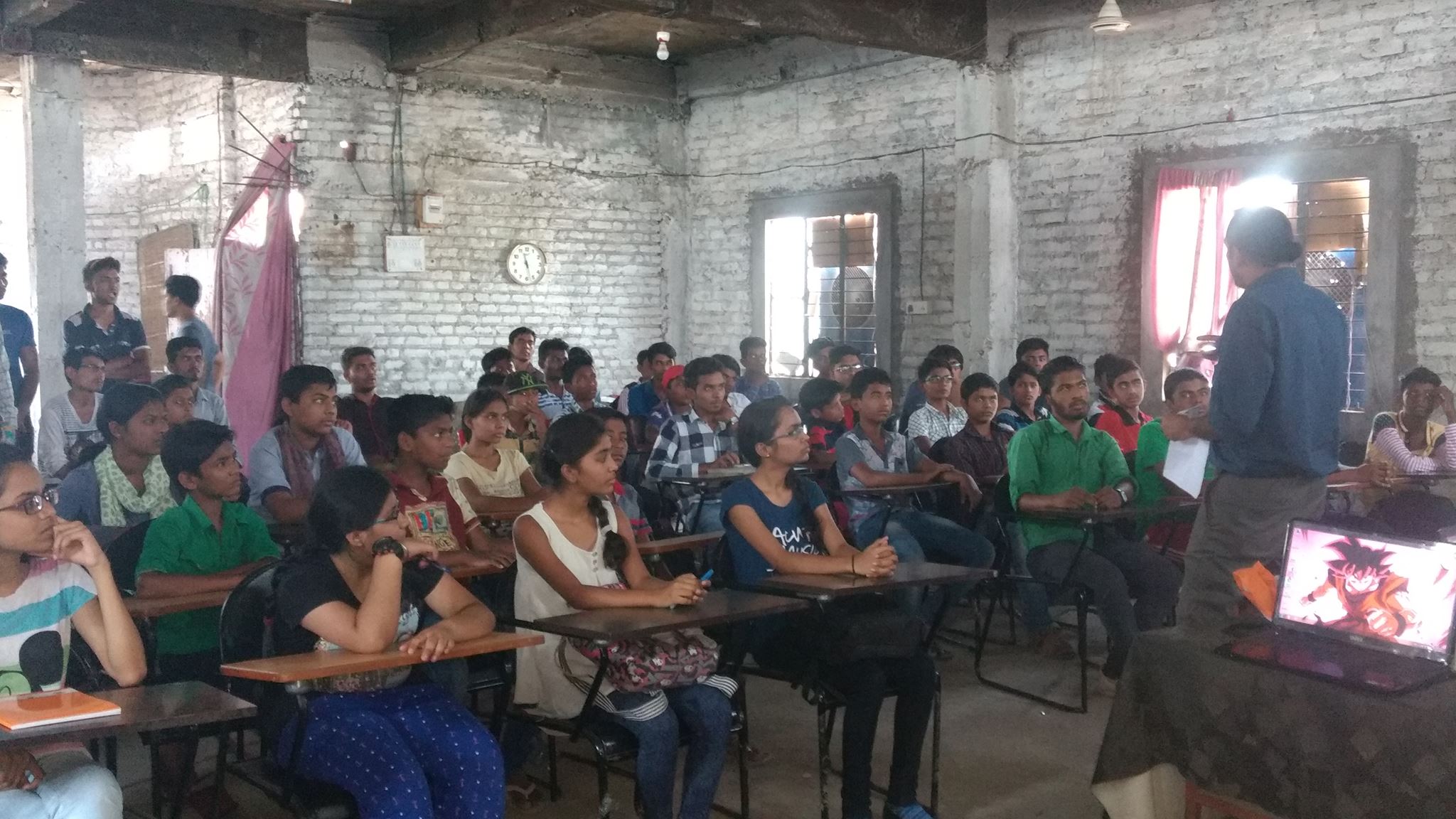
I am now moving to a very emotional question. This question is about our dear friend Abhiyan Humane. His untimely departure has created a big gap. He was trying to do something which none of us were even thinking of, like training our young students in Science, Technology, Engineering, and Mathematics (STEM). Can you throw some light on how his untimely death has left us all shattered and how it affected Nalanda?
Abhiyan…what to say about him! He was a friend. He was the one who gave me hope and strength in my most difficult times. In 2006-07, when he was in the US for higher education, we got in touch through email. Once he came back, we started working together on many initiatives. Abhiyan was a scientist, an artist and a visionary. He always stressed on the need for Nalanda to train school students in sciences, arts and technology as till then I only taught under-graduate students for social sciences courses. But he was sure that we need to target our school going kids and develop scientific temper in them. He used to say that Buddha and Babasaheb both were not mere religious or political leaders, they were actually scientists. They were scientists in the sense that they promoted scientific temper in the society and that is where our real battle is. If our people are steeped in blind superstitions and are lacking scientific temper, we will never succeed in our battle. For many years he would visit Nalanda to take science workshops for the neighbourhood kids, especially during the summer vacations. It was during one such workshop in 2017, he shared his desire to leave everything and come to Wardha and work with Nalanda full time. I was thrilled hearing that but at first I did not believe him. I thought he was joking, given the kind of elite privileged background he was from. I used to tell him that many people have said this to me but no one could ever walk the talk!
In 2018, he left his job as a professor in a very elite educational institution in Bengaluru and came to Wardha to teach our kids. He told us that he was going to build a modern science lab in Nalanda and once we had it running here, we would reach out to all Buddha vihar. These are the only public spaces especially in the context of Maharashtra that we own. We would place these labs and libraries in the vihar and let the students experiment there and get exposed to the latest technologies. So when he came in 2018, he brought 3D printers, drones, and many more gadgets and electronic equipment. He spent lakhs of rupees from his own pocket to buy these equipment and to establish the Nalanda Labs at our Academy. Once the lab came into being, he started training young students from class IV-Vth onwards in Science, Arts and Technology. He also mentored many engineering graduate students as his research assistants and to take up individual science projects.
After establishing the lab, we both thought of actively engaging the larger community, outside Wardha. So we started travelling together. We went to Odisha, Chhattisgarh, different places in Maharashtra, Kerala, Karnataka to take workshops, seminars for our students. We were a good team together. I was from a social science background and he was from sciences. So we could engage our students in these meetings and workshops quite well. It was all going very good and suddenly you know your dreams are demolished. Last year on 8th February, he had a cardiac arrest and he died. I cannot even tell you how big a loss it is for us. He was actually the one who initiated the idea of having our own campus. Earlier I was working all alone. When you are working alone you cannot dream much. You know that the entire burden of the dream will be on you. You are scared even to dream. But when you have a friend who says that he is with you completely, without any condition, you also start dreaming big.
Not only was Abhiyan there with us as an individual, he also brought lots of experience, knowledge, personal contacts and resources. Suddenly our Academy in Wardha started getting visited by renowned scientists, artists and scholars, even from foreign countries. There was Marc Lee, an artist from Switzerland who came and stayed with us for 7 days. So that one year was a dream for us. We were so happy. Whatever our vision was, I could see that happening for the first time in my life. Life is cruel, what more I can say. It has been a big setback. The Lab is still functioning. But the kind of work which he would have done, we are not able to do. Hopefully in future we will have friends to take his vision forward.

We titled this discussion with you as ‘Nalanda: An Ambedkarite Revolution in Education’. I know that you do not like the idea of calling Nalanda as a centre for the Ambedkarite revolution but most of the people do look at it as a kind of prototype of a revolution that has to come. Can you throw some light on how this revolution is of utmost importance?
Why I don’t like the word revolution is that it is too much of a responsibility on one shoulder. I will never use that. You are very kind actually to call it a revolution. I see Nalanda as a small initiative which tries to give a positive confident identity to the community. We live under so many negative stereotypes such as the Ambedkarite movement is a failure, our students not being meritorious enough, our people after taking reservations not supporting the community back, our elites are very selfish, our middle-class professionals are parasites unwilling to pay back to the community after taking all the benefits and so on. I have lived with all these stereotypes. While working in the movement for over two decades, I have seen the opposite. Of course, there are many Dalits who do not come forward and support but that is there in every community. We are not some special people. We are human beings. Some of us will be selfish and narrow-minded. Some of us will be selfless and will give their whole lives to the movement and yet our contributions will not be much visible due to these negative stereotypes continuously being heaped on us from all sides. These are the stereotypes I have fought all my life and this is what has affected me a lot. To fight these debilitating stereotypes we need to create more and more positive role models and examples in front of the community that we have talented, articulate people with resources who are selfless and working their whole lives to empower the community in many different ways.
You are already aware that Nalanda is completely run on community resources. I have many friends who are in top positions. They come and spend their time with the students. They help our students unconditionally. I have friends who have paid full fees for many of our students taking admissions in top institutions and yet never asked to put their names anywhere. If you would have noticed, I never take names of our contributors anywhere. I never put names of my donors on FB or anywhere else because I believe we are not doing any charity work. We are building our community. We are investing in our future. This is one of the messages Nalanda is able to give out to our people that the privileged of our community are also contributing in their own ways and have not abandoned the community. In that sense, I can say that Nalanda has made some contribution, apart from providing direct support to our students to fight the battle against the myth of ‘merit’.
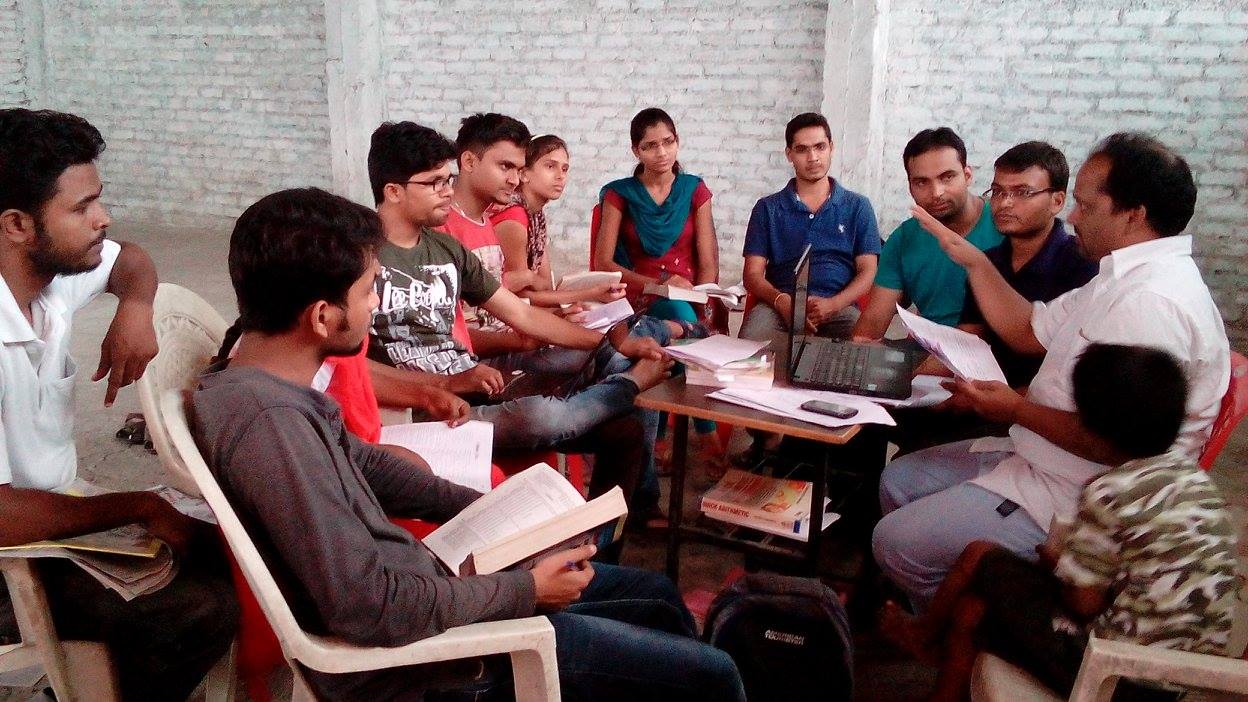
I personally feel that the kind of work you are doing is like sowing seeds in the young minds. You are also inspiring the community to take initiatives and you have put up a model by which such initiatives can be sustained. This is something which is very unique and you deserve all appreciation. Anoop bhai we are coming towards the end of our discussion. I will request you to offer a few concluding words.
Thank you so much to all friends who have been supporting Nalanda. It gives lots of strength to us. Honestly speaking if the community support was not there, I would not have been able to do anything. I have lived a very depressing life. For many years, I worked on our students’ suicides in higher education, much before the Rohith Vemula incident happened. Along with some of my friends, I made documentaries, fought court cases, did many things. But I was not happy. In none of the cases we fought was there any justice for us. I saw first-hand how the system is so hostile to us and to our rights. I have witnessed high court judges throwing our petitions away saying that caste is not there, anywhere. At one time, in 2012-13, I felt completely hopeless. By then I had spent years producing documentaries, fighting discrimination cases, even organising protests. But there was no justice, not even some semblance of that. This was a very depressing time for me. Fortunately, then I chose this path. That is why I am so thankful to the community for supporting this initiative of Nalanda Academy.
But I am a bit scared too. Once the community poses so much hope on you, it is a little scary. The burden sits very heavy on your shoulders. So far, friends have supported me unconditionally. I want my friends to keep this faith in me and I hope that I am always able to stand true to that faith and we are able to create a good national educational institution. I also wish our Nalanda model is replicated everywhere. I don’t need to convince anyone about the importance of education. How much ever poor or uneducated the person is, he/she knows the importance of proper education for his/her children. So I don’t need to convince anyone about the usefulness of Nalanda. This is the best thing. I don’t need to tell anyone that we need to do this work. Everybody is aware. Our leaders…take any leader, from whatever region, I can tell you a number of stories of them investing in education, right from Jotiba Phule till today. Our movement has always given emphasis on education. So I don’t have to invent the wheel again. Our people are aware of it. We just need to come together and create institutions and work with the community. This is not very difficult actually. The journey so far with Nalanda has been kind of smooth for me. Thanks to the community, thanks to the Ambedkarites all across the world. I am able to live my dream.
When I was doing engineering, I felt suicidal because there was no one to help. So when our students commit suicide, I understand them perfectly. Many of our own people say that they were cowardly, weak and that they should have fought. No, they were not weak students, they were not cowards. They had actually fought their battles. But they reached a point where they felt that they could not take it anymore. The suicide is their final protest, the biggest form of protest. I understand it because I have gone through the same. I don’t want my children to go through that. I don’t want my next generation to face that stigma, humiliation, alienation, loneliness and inferiority complex. If our movement is not able to provide support to our young students, then there is no reason for such a movement to exist. When the community people need you, and you are not there for them, then everything else is just empty words. I felt that very strongly during my student life. That was the moment when I decided that I am going to work on this. It is now almost 25 years. I started in 1995-96 and since then I have not done anything else apart from working with the students and I want to continue with that till last.
To support Nalanda Academy, please visit here.



+ There are no comments
Add yours